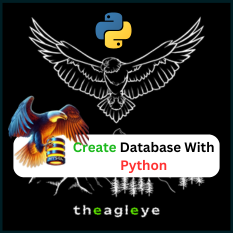Keywords are the reserved words that have special meaning in the PHP language.
Those words cannot be used as variable names, function names, or class names.
These keywords are used to define the syntax and structure of PHP programs.
What Happens If You Use a Keyword as a Variable Name?
PHP will throw an error because keywords are reserved and cannot be used as variable names.
For example:
$echo = "Hello"; // Error: 'echo' is a reserved keyword
List of PHP Keywords:
|
and or xor __CLASS__ __DIR__ __FILE__ __FUNCTION__ __LINE__ __METHOD__ __NAMESPACE__ __TRAIT__ abstract as break callable case catch class clone const |
continue declare default die do echo else elseif empty enddeclare endfor endforeach endif endswitch endwhile eval exit extends final finally |
fn for foreach function global goto if implements include include_once instanceof insteadof interface isset list namespace new private protected |
public require require_once return static switch throw trait try unset use var while yield yield from |
14+ simple interview questions about PHP keywords with answers
Question 1. What are PHP keywords?
Answer: PHP keywords are reserved words that have special meanings in the PHP language. They are used to define the structure and behavior of PHP programs.
Question 2. Can you name a few PHP keywords?
Answer: Some common PHP keywords are echo, if, else, function, class, return, foreach, and static.
Question 3. Why are PHP keywords reserved?
Answer: PHP keywords are reserved because they have predefined meanings and functions in the PHP language. Using them for other purposes (like variable names) would cause confusion and errors.
Question 4. Can you use PHP keywords as variable names?
Answer: No, PHP keywords cannot be used as variable names. Doing so will result in a syntax error.
Question 5. What happens if you use a PHP keyword as a variable name?
Answer: PHP will throw an error because keywords are reserved and cannot be used as variable names.
Question 6. What is an example of a PHP keyword?
Answer: An example of a PHP keyword is echo, which is used to output data to the screen.
Question 7. Why should you avoid using PHP keywords as function names?
Answer: PHP keywords are reserved for specific purposes, so using them as function names will cause errors and make the code invalid.
Question 8. What is the purpose of PHP keywords?
Answer: PHP keywords are used to define the syntax and structure of PHP programs, such as control structures (if, else), output (echo, print), and functions (function, return).
Question 9. Can you use PHP keywords as class names?
Answer: No, PHP keywords cannot be used as class names because they are reserved for specific purposes in the PHP language.
Question 10. What is the difference between a keyword and a variable in PHP?
Answer: A keyword is a reserved word with a special meaning in PHP, while a variable is a container that stores data. Keywords cannot be used as variable names.
Question 11. How do you identify a PHP keyword?
Answer: PHP keywords are predefined and reserved by the PHP language. You can find a list of PHP keywords in the official PHP documentation.
Question 12. What should you do if you accidentally use a PHP keyword as a variable name?
Answer: You should rename the variable to something that is not a reserved keyword to avoid errors.
Question 13. Are PHP keywords case-sensitive?
Answer: No, PHP keywords are not case-sensitive. For example, echo, ECHO, and Echo all work the same way.
Question 14. Can you create a function with the same name as a PHP keyword?
Answer: No, you cannot create a function with the same name as a PHP keyword because keywords are reserved and cannot be reused.
Question 15. What is the most important thing to remember about PHP keywords?
Answer: The most important thing to remember is that PHP keywords are reserved and cannot be used as variable names, function names, or class names.





Leave a comment
You must be logged in to post a comment.